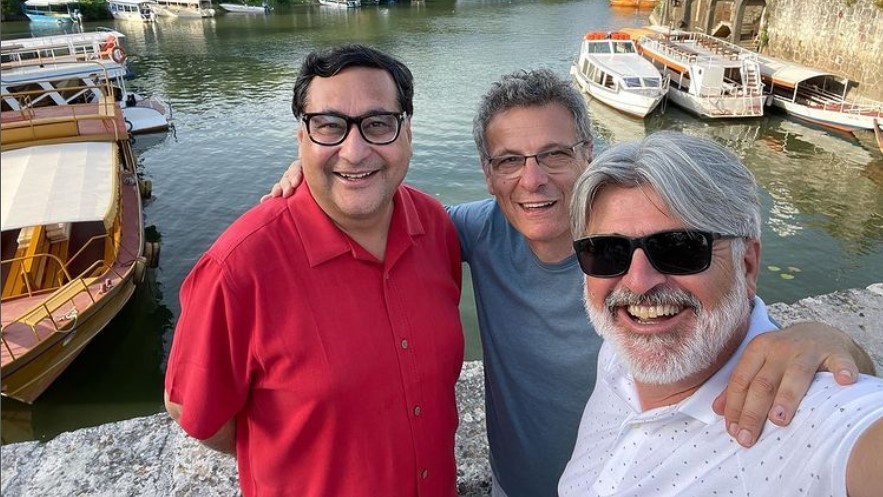Garčević and Najam Participate in 15th Summer School for Young Diplomats

Ambassador Vesko Garčević, Professor of the Practice of International Relations at Boston University’s Frederick S. Pardee School of Global Studies, and Adil Najam, Dean Emeritus/Professor of International Relations and Earth and Environment at the Pardee School, participated in the 15th Summer School for Young Diplomats in Montenegro. This year’s edition of Summer School was co-hosted by the Montenegrin Ministry of Foreign Affairs and the United Nations Development Program Montenegro.
Held from July 3-10, the program brought together 47 young diplomats from 32 countries as well as 35 lecturers – diplomats, scholars, and practitioners – from Europe and the United States to discuss complex issues of contemporary international affairs. A particular emphasis was placed on the role and importance of diplomacy in conflict resolution, preserving international peace and security, overcoming crises, and developing new models of cooperation in the international arena.
Garčević participated in two panels over the course of the event with fellow thought leaders and diplomatic practitioners Ambassador Christoph Heusgen, Chairman of the Munich Security Conference; James Appathurai, Deputy Assistant Secretary-General, Emerging Security Challenges Division at NATO; Edward P. Joseph, Senior Fellow and Adjunct Professor at the Johns Hopkins University; Romanian Ambassador Viorel Ardeleanu; and Finish Ambassador Kimmo Lahdevirta. Both panels addressed the Ukrainian crisis and its effects on European and global affairs. Speaking about the Western approach to Russia and Eastern Europe, Garčević pointed out that while the West remained united at the surface, it was politically divided over how to deal with Eastern Europe and Russia. The West and countries from Eastern Europe are caught in what he calls an “escalation dilemma,” which implies that both sides want to step up their cooperation as Ukraine, Georgia, and Moldova aspires to join the European Union. However, it is hindered by the perception that an enhanced partnership would further provoke Moscow and escalate the crisis. Against that backdrop, enlargement to Eastern Europe looks highly unlikely for a risk-averse Brussels.
Najam delivered a talk on “Climate Diplomacy in the Age of Adaptation,” which was followed by a Q&A session with participants. He highlighted that while global diplomacy is to be credited with raising the profile of global climate change as an issue of public concern, the unfortunate fact is that this has not led to real action by governments, businesses, or individuals at anything close to the levels needed. This “failure of mitigation” is what Najam said has brought us into the Age of Adaptation. Moreover, diplomacy itself now has to adapt to the new realities of global climate challenges. He went on to state that a primary facet of this will be that climate can no longer be considered to be just about “carbon management;” rather, it has to be about dealing with the impacts of climate change and that means that climate diplomacy will look more and more like development diplomacy.
For more information on the Summer School for Young Diplomats, visit their website.
During his diplomatic career, Ambassador Vesko Garčević dealt with issues pertinent to European security and NATO for almost 14 years. In 2004, he was posted in Vienna to serve as Ambassador to Organization for Security and Cooperation in Europe. He had been Montenegro’s Ambassador to NATO from 2010 until 2014 and served as Montenegro’s National Coordinator for NATO from 2015 until he joined the faculty at the Pardee School. Learn more about Ambassador Garčević on his faculty profile.
Adil Najam is a global public policy expert who served as the Inaugural Dean of the Frederick S. Pardee School of Global Studies at Boston University and was the former Vice-Chancellor of the Lahore University of Management Sciences (LUMS). His research focuses on issues of global public policy, especially those related to global climate change, South Asia, Muslim countries, environment and development, and human development. Read more about Najam on his faculty profile.